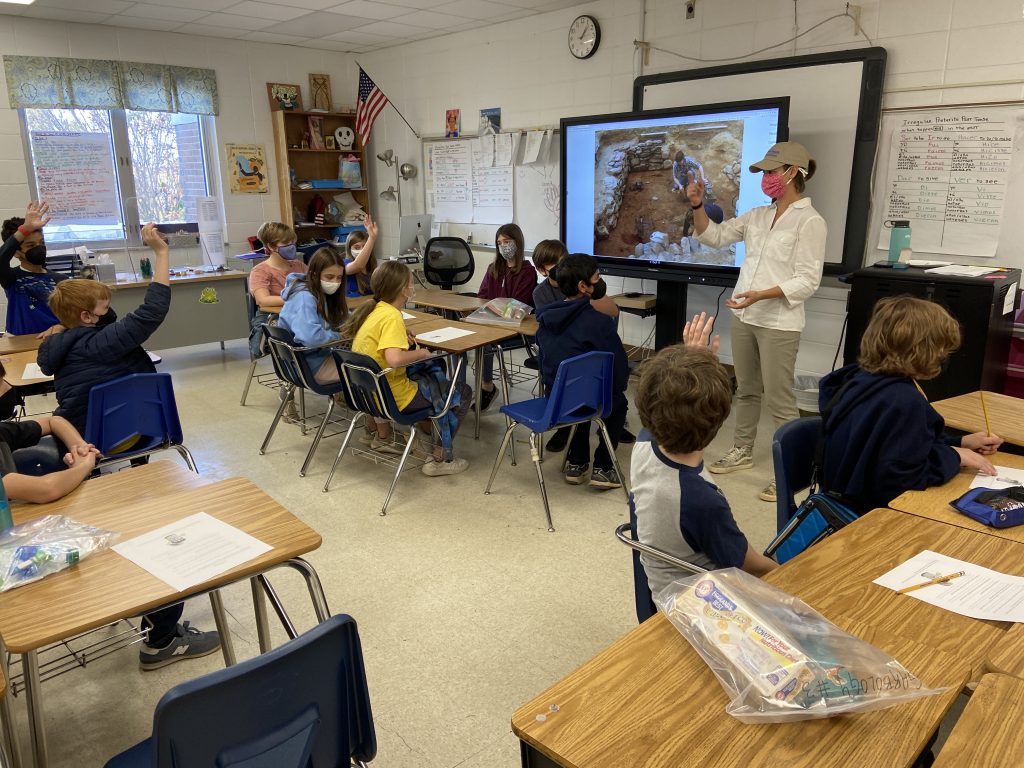M. Anne Dorland, M.Ed.
New South Associates, Inc.
I have pondered this question since the very beginning of my career in the heritage industry. Why should our tax dollars be spent on the preservation and excavation of archaeological sites? My answer has expanded over the years as I’ve observed the value of work conducted by historians, archaeologists, and other heritage professionals. As an undergraduate student studying anthropology, I felt that everyone should have an interest in saving heritage sites for future generations. No more Archaic Period sites were being created, no more mounds were being built, and no more priceless artifacts were being crafted. I was genuinely flabbergasted when anyone told me they saw little value in historic preservation.
In society, we are generally invested in the present and, to some degree, the future. At the age of 21, I understood the value of preserving non-renewable resources like Archaic Period sites, mounds, and priceless artifacts, but I did not know about the wide array of applications those resources hold for our present and future. I attempted to convince anyone who would listen why they should care about heritage sites and, as I am sure you can imagine, I was not extraordinarily successful in shifting perspectives.
In fact, I cared so much about changing public perception that I decided to pursue a master’s degree in education to create generational shifts in the ways that people interact with and view heritage resources. I started graduate school with the notion that I would learn how to educate people about their heritage and why it is valuable.
I will forever be grateful that I learned something quite different. Instead, I gained the ability to guide scholars in making their own discoveries of the past. I learned how to share my passion for heritage by enabling young people to explore the gamut of ways that the past applies to the present and how it can help improve our future. Some of the most daunting challenges for humans today, including climate change and resource availability, can be addressed using research conducted at heritage sites. Before the advent of written language, humans were effectively managing resources in extremely difficult circumstances. Archaeologists study the non-documentary evidence left behind over thousands of years by people who found a way to survive against all odds.

After graduate school, I joined New South Associates where my love for both archaeology and education merged. As I grow professionally, my answer to why heritage work matters grows as well. At New South, I see that heritage work reconnects people with their ancestors in a tangible, visceral way. Projects like Avondale Burial Place demonstrate that what’s buried beneath our feet can empower, heal, and unite communities.
Avondale Burial Place is an African American cemetery that had been forgotten over the years. New South worked with Georgia Department of Transportation to identify the descendants of the people buried in that cemetery, joining them with both their ancestors and the other living descendants. The Avondale Burial Place project provided connection, closure, and community for the descendants of enslaved African Americans. Projects like this one illuminate stories that are not told by history books. While textbooks provide one perspective on the past, heritage work sheds light on many other perspectives that otherwise may never be shared. And the only way we can do this is by preserving and excavating the sites that hold the keys to these perspectives. Everyone’s story deserves to be told – that is why heritage work matters.

